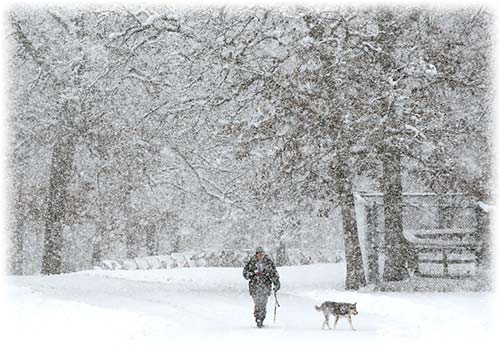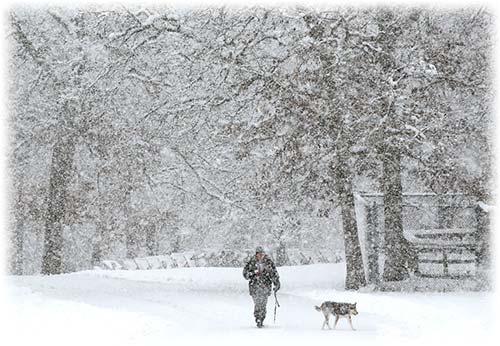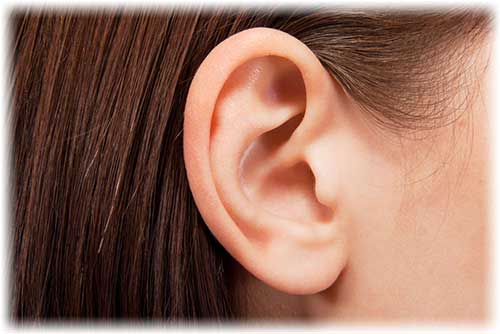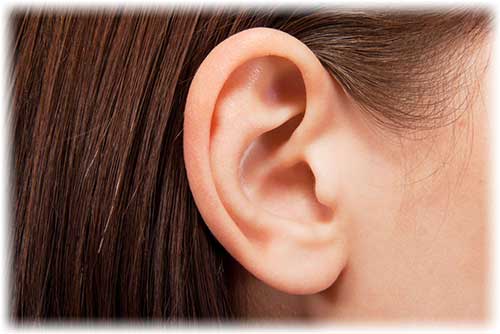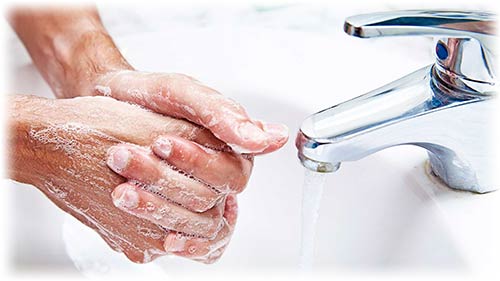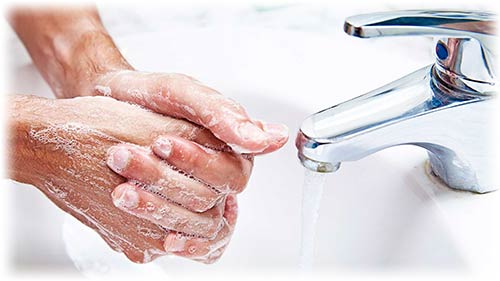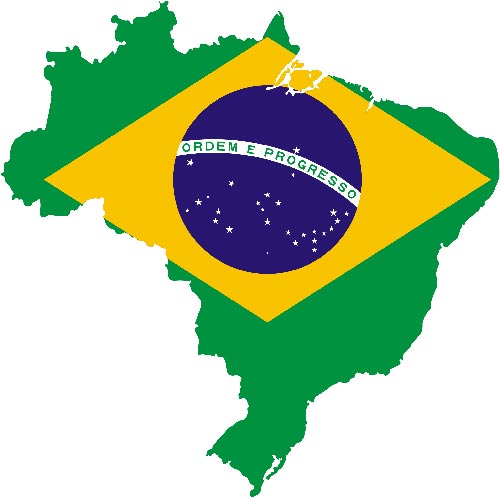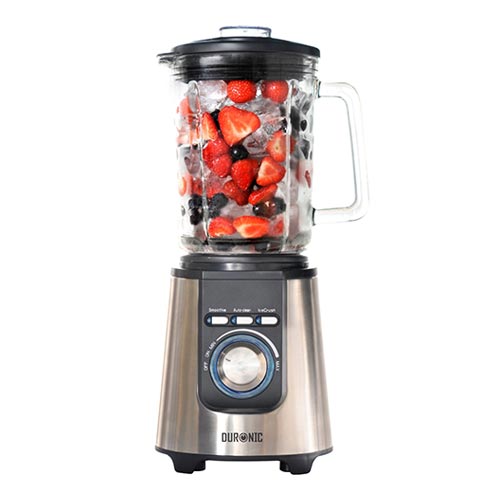see
see [see sees saw seeing seen] verb, noun [siː] [siː]
verb (saw [sɔː] ; [sɔː] seen [siːn] ; [siːn] )
USE EYES
1. transitive, intransitive (not used in the progressive tenses) to become aware of sb/sth by using your eyes
• ~ (sb/sth) She looked for him but couldn't see him in the crowd.
• I looked out of the window but saw nothing.
• The opera was the place to see and be seen (= by other important or fashionable people).
• ~ (that)… He could see (that) she had been crying.
• ~ what, how, etc… Did you see what happened?
• If you watch carefully, you'll see how it is done.
• ~ sb/sth + adj. I hate to see you unhappy.
• ~ sb/sth doing sth She was seen running away from the scene of the crime.
• ~ sb/sth do sth I saw you put the key in your pocket.
• sb/sth is seen to do sth He was seen to enter the building about the time the crime was committed.
2. intransitive (not usually used in the progressive tenses) to have or use the power of sight
• She will never see again (= she has become blind).
• On a clear day you can see for miles from here.
• ~ to do sth It was getting dark and I couldn't see to read.
WATCH
3. transitive (not usually used in the progressive tenses) ~ sth to watch a game, television programme, performance, etc
• Did you see that programme on Brazil last night?
• In the evening we went to see a movie.
• Fifty thousand people saw the match.
LOOK UP INFORMATION
4. transitive (used in orders) ~ sth to look at sth in order to find information
• See page 158.
MEET BY CHANCE
5. transitive ~ sb (not usually used in the progressive tenses) to be near and recognize sb; to meet sb by chance
• Guess who I saw at the party last night!
VISIT
6. transitive ~ sb to visit sb
• Come and see us again soon.
HAVE MEETING
7. transitive ~ sb (about sth) to have a meeting with sb
• You ought to see a doctor about that cough.
• What is it you want to see me about?
• I can only see you for five minutes.
SPEND TIME
8. transitive (often used in the progressive tenses) ~ sb to spend time with sb
• Are you seeing anyone (= having a romantic relationship with anyone)?
• They've been seeing a lot of each other (= spending a lot of time together) recently.
UNDERSTAND
9. intransitive, transitive (not usually used in the progressive tenses) to understand sth
• ‘It opens like this.’ ‘Oh, I see.’
• ~ sth He didn't see the joke.
• I don't think she saw the point of the story.
• I can see both sides of the argument.
• Make Lydia see reason (= be sensible), will you?
• ~ (that)… Can't you see (that) he's taking advantage of you?
• I don't see that it matters what Josh thinks.
• ~ what, why, etc… ‘It's broken.’ ‘Oh yes, I see what you mean.’
• ‘Can we go swimming?’ ‘ I don't see why not (= yes, you can).’
• be seen to do sth The government not only has to do something, it must be seen to be doing something (= people must be aware that it is doing sth).
HAVE OPINION
10. transitive ~ sth + adv./prep. (not usually used in the progressive tenses) to have an opinion of sth
• I see things differently now.
• Try to see things from her point of view.
• Lack of money is the main problem, as I see it (= in my opinion).
• The way I see it, you have three main problems.
IMAGINE
11. transitive (not used in the progressive tenses) to consider sth as a future possibility; to imagine sb/sth as sth
• ~ sb/sth doing sth I can't see her changing her mind.
• ~ sb/sth as sth His colleagues see him as a future director.
FIND OUT
12. intransitive, transitive (not usually used in the progressive tenses) to find out sth by looking, asking or waiting
• ‘Has the mail come yet?’ ‘I'll just go and see.’
• ‘Is he going to get better?’ ‘I don't know, we'll just have to wait and see.’
• We'll have a great time, you'll see.
• ~ what, how, etc… Go and see what the kids are doing, will you?
• We'll have to see how it goes.
• ~ (that)… I see (that) interest rates are going up again.
• it is seen that… It can be seen that certain groups are more at risk than others.
13. intransitive, transitive (not usually used in the progressive tenses) to find out or decide sth by thinking or considering
• ‘Will you be able to help us?’ ‘I don't know, I'll have to see.’
• ‘Can I go to the party?’ ‘ We'll see (= I'll decide later).
• ~ what, whether, etc… I'll see what I can do to help.
MAKE SURE
14. transitive (not usually used in the progressive tenses) ~ that… to make sure that you do sth or that sth is done
• See that all the doors are locked before you leave.
• Could you see that the kids are in bed by 8 o'clock?
EXPERIENCE
15. transitive (not used in the progressive tenses) ~ sth to experience or suffer sth
• He has seen a great deal in his long life.
• I hope I never live to see the day when computers finally replace books.
• It didn't surprise her— she had seen it all before.
WITNESS EVENT
16. transitive (not used in the progressive tenses) ~ sth to be the time when an event happens
• Next year sees the centenary of Mahler's death.
17. transitive (not used in the progressive tenses) ~ sth to be the place where an event happens
Syn: witness
• This stadium has seen many thrilling football games.
HELP
18. transitive ~ sb + adv./prep. to go with sb to help or protect them
• I saw the old lady across (= helped her cross) the road.
• May I see you home (= go with you as far as your house)?
• My secretary will see you out (= show you the way out of the building).
Rem: Most idioms containing see are at the entries for the nouns and adjectives in the idioms, for example not see the wood for the trees is at wood.
Verb forms:
Word Origin:
v. and Old English sēon Germanic Dutch zien German sehen Indo-European Latin sequi ‘follow’
n. Middle English Anglo-Norman French sed Latin sedes ‘seat’ sedere ‘sit’
Thesaurus:
see verb
1. T (not used in the progressive tenses)
• Did you see what happened?
notice • • spot • • catch • • take sth in • • note • • detect • • witness • |formal observe • • perceive • |written glimpse • • sight •
see/notice/note/detect/observe/perceive that…
see/notice/note/spot/detect/observe/perceive how/what/where/who…
see/notice/witness/observe sth happen/sb do sth
suddenly see/notice/spot/catch/detect/perceive/glimpse sb/sth
2. T (not used in the progressive tenses)
• We went to see a movie.
watch • |formal view • |especially AmE, informal catch •
see/watch/view/catch a film/movie/show/programme
see/watch/catch a match/game/fight
3. T
• You should see a doctor.
visit • • go to sth • • consult •
see/visit/consult a/the doctor/dentist
come/go and/to see/visit sb
4. T (used especially in the progressive tenses)
• Are you seeing anyone at the moment?
go out • |especially AmE date • |especially spoken be together • |old-fashioned court • • woo •
See, go out with sb or date? These expressions are all commonly used in the progressive tenses with time expressions such as how long, for three months, etc. This suggests a temporary relationship that may or may not become permanent.
5. I, T (not used in the progressive tenses) (especially spoken)
• Oh yes, I see what you mean.
understand • • grasp • • follow • |informal, especially spoken get • • catch on • |formal comprehend •
see/follow/understand/grasp/get/catch on to/comprehend what/why/how…
see/understand/grasp/comprehend that…
can/can't see/follow/understand/grasp/comprehend sth
be easy/difficult/hard to see/follow/understand/grasp/comprehend
6. T (not used in the progressive tenses)
• Try to see it from her point of view.
look at sth • • consider • • view • |formal regard •
see/look at/consider/view/regard sb/sth as sth
see/look at/consider/view/regard sb/sth from a particular point of view
see/look at/view/regard sb/sth with sth
7. T (not used in the progressive tenses)
• I can't see her changing her mind.
imagine • • picture • • visualize • • envision • |especially BrE envisage • |formal conceptualize •
see/imagine/picture/visualize/envision/envisage/conceptualize sb/sth as sth
see/imagine/picture/visualize/envision/envisage (sb) doing sth
see/imagine/picture/visualize/envision/envisage who/what/how…
Synonyms:
imagine
think • see • envisage • envision
These words all mean to form an idea in your mind of what sb/sth might be like.
imagine • to form an idea in your mind of what sb/sth might be like: ▪ The house was just as she had imagined it.
think • to imagine sth that might happen or might have happened: ▪ We couldn't think where you'd gone. ◊ ▪ Just think ▪ — this time tomorrow we'll be lying on a beach.
see • to consider sth as a future possibility; to imagine sb as sth: ▪ I can't see her changing her mind. ◊ ▪ His colleagues see him as a future director.
envisage • (especially BrE) to imagine what will happen in the future: ▪ I don't envisage working with him again.
The usual word for this in American English is envision (see below).
envision • to imagine what a situation will be like in the future, especially a situation that you intend to work towards: ▪ They envision an equal society, free from poverty and disease.
Envision is used especially in business and political contexts. In North American English it is also used as another form of the word envisage: ▪ I don't envision working with him again.
to imagine/see/envisage/envision sb/sth as sth
to imagine/see/envisage/envision (sb) doing sth
to imagine/think/see/envisage/envision who/what/how…
to imagine/think/envisage/envision that…
Synonyms:
look
watch • see • view • observe
These words all mean to turn your eyes in a particular direction.
look • to turn your eyes in a particular direction: ▪ If you look carefully you can just see our house from here. ◊ ▪ She ▪ looked at ▪ me and smiled.
watch • to look at sb/sth for a time, paying attention to what happens: ▪ to watch television ◊ ▪ Watch what I do, then you try.
see • to watch a game, television programme, performance, etc: ▪ In the evening we went to see a movie.
view • (formal) to look at sth, especially when you look carefully; to watch television, a film/movie, etc: ▪ People came from all over the world to view her work.
watch, see or view?
You can see/view a film/movie/programme but you cannot: see/view television. View is more formal than see and is used especially in business contexts.
observe • (formal) to watch sb/sth carefully, especially to learn more about them or it: ▪ The patients were observed over a period of several months.
to look/watch for sb/sth
to watch/observe what/who/how…
to look/watch/view/observe (sb/sth) with amazement/surprise/disapproval, etc.
to watch/see/view a film/movie/show/programme
to watch/see a match/game/fight
to look (at sb/sth)/watch (sb/sth)/observe sb/sth carefully/closely
Synonyms:
regard
call • find • consider • see • view
These words all mean to think about sb/sth in a particular way.
regard • to think of sb/sth in a particular way: ▪ He seemed to regard the whole thing as a joke.
call • to say that sb/sth has particular qualities or characteristics: ▪ I wouldn't call German an easy language.
find • to have a particular feeling or opinion about sth: ▪ You may find your illness hard to accept.
consider • to think of sb/sth in a particular way: ▪ Who do you consider (to be) responsible for the accident?
regard or consider?
These two words have the same meaning, but they are used in different patterns and structures. In this meaning consider must be used with a complement or clause: you can consider sb/sth to be sth or consider sb/sth as sth, although very often the to be or as is left out: ▪ He considers himself an expert. ◊ ▪ They are considered a high-risk group. You can also consider that sb/sth is sth and again, the that can be left out. Regard is used in a narrower range of structures. The most frequent structure is regard sb/sth as sth; the as cannot be left out: I regard him a close friend. You cannot regard sb/sth to be sth or regard that sb/sth is sth. However, regard (but not consider in this meaning) can also be used without a noun or adjective complement but with just an object and adverb (sb/sth is highly regarded) or adverbial phrase (regard sb/sth with suspicion/jealousy/admiration).
see • to have an opinion of sth: ▪ Try to see things from her point of view.
view • to think of sb/sth in a particular way: ▪ How do you view your position within the company?
View has the same meaning as regard and consider but is slightly less frequent and slightly less formal. The main structures are view sb/sth as sb/sth (you cannot leave out the as) and view sb/sth with sth.
to regard/consider/see/view sb/sth as sth
to regard/consider/see/view sb/sth from a particular point of view
to find/consider sb/sth to be sth
generally/usually regarded/considered/seen/viewed as sth
to regard/consider/view sb/sth favourably/unfavourably
Synonyms:
see
spot • catch • glimpse
These words all mean to become aware of sb/sth by using your eyes, especially suddenly or when it is not easy to see them/it.
see • to become aware of sb/sth by using your eyes: ▪ She looked for him but couldn't see him in the crowd. ◊ ▪ He could see (that) she had been crying.
spot • to see or notice sb/sth, especially suddenly or when they are not easy to see or notice: ▪ I've just spotted a mistake on the front cover.
catch • to see or notice sth for a moment, but not clearly or completely: ▪ She ▪ caught sight ▪ of a car in the distance. ◊ ▪ He ▪ caught a glimpse ▪ of himself in the mirror.
glimpse • (literary) to see sb/sth for a moment, but not clearly or completely: ▪ He'd glimpsed her through the window as he passed.
to see/spot that/how/what/where/who…
to suddenly see/spot/catch/glimpse sb/sth
Synonyms:
understand
see • get • follow • grasp • comprehend
These words all mean to know or realize sth, for example why sth happens, how sth works or what sth means.
understand • to know or realize the meaning of words, a language, what sb says, etc; to know or realize how or why sth happens, how it works or why it is important: ▪ I don't understand the instructions. ◊ ▪ Doctors still don't understand much about the disease.
see • to understand what is happening, what sb is saying, how sth works or how important sth is: ▪ ‘It opens like this.’ ‘Oh, ▪ I see ▪.’ ◊ ▪ Oh yes, ▪ I see what you mean ▪.
get • (informal) to understand a joke, what sb is trying to tell you, or a situation that they are trying to describe: ▪ She didn't get the joke. ◊ ▪ I don't get you.
follow • to understand an explanation, a story or the meaning of sth: ▪ Sorry— I don't quite follow. ◊ ▪ The plot is almost impossible to follow.
grasp • to come to understand a fact, an idea or how to do sth: ▪ They failed to grasp the importance of his words.
understand or grasp?
You can use understand or grasp for the action of realizing the meaning or importance of sth for the first time: ▪ It's a difficult concept for children to understand/grasp. Only understand can be used to talk about languages, words or writing: I don't grasp French/the instructions.
comprehend • (often used in negative statements) (formal) to understand a fact, idea or reason: ▪ The concept of infinity is almost impossible for the human mind to comprehend.
to understand/see/get/follow/grasp/comprehend what/why/how…
to understand/see/grasp/comprehend that…
to understand/see/get/grasp the point/idea (of sth)
to be easy/difficult/hard to understand/see/follow/grasp/comprehend
to fully understand/see/grasp/comprehend sth
Example Bank:
• ‘Has the post come yet?’ ‘I'll just go and see.’
• ‘Is he going to get better?’ ‘I don't know, we'll just have to wait and see.’
• A dolphin? Oh, let me see!
• Aren't you pleased to see me?
• Can't you see the joke?
• Don't worry, I'll see you home.
• Economists expect to see the trend continue.
• He came over to see me after my surgery.
• He came over to see what was going on.
• He didn't live to see his grandchildren.
• He saw first-hand the impact of colonialism.
• He turned and saw her smile.
• He was surprised to see Lucy standing there.
• I can see why you were so angry about it.
• I can't see the point of doing that.
• I can't wait to see his face!
• I could hardly see because of the smoke.
• I could see the boat clearly now.
• I don't see why she should get more money than the others.
• I fail to see how this idea will help anyone.
• I finally got to see them in concert.
• I know it's hard to believe but I saw it with my own eyes.
• I looked up, only to see Tommy chatting to someone.
• I never thought I'd live to see this day!
• I want to see how they'll react.
• I went to see a movie.
• I'd love to see her win the gold medal.
• I'm glad to see that you're keeping well.
• I'm here to see Lisa Daniels.
• It is difficult to see how to get around this problem.
• It's nice to see the children playing together.
• Let me see the evidence!
• Let's see what happens.
• Logan came around to see me about a job.
• She claims that she can see into the future.
• She turned to see who it was.
• She went to see the doctor about it.
• She's gone to see the mechanic about getting her car repaired.
• The star is bright enough to see with the naked eye.
• This problem is commonly seen in young adults.
• Veronica came to see him in prison.
• We could just see the hotel in the distance.
• We expect to see an increase of 50–60%.
• We'll have to wait to see if sales hold up.
• You can see at a glance if all is well.
• ‘It opens like this.’ ‘Oh, I see.’
• Can't you see that he's taking advantage of you?
• Come and see us again soon!
• Did you see that documentary about Brazil last night?
• Fifty thousand people saw the game.
• He doesn't see how important this is.
• He said he'd been to see his sister.
• I can't see her changing her mind.
• I don't quite see what he's getting at.
• I don't see that it matters what he thinks.
• I don't think she saw the point of the story.
• I've come to see Ben.
• If you watch carefully, you'll see how it is done.
• Lack of money is the main problem, as I see it.
• Oh yes, I see what you mean.
• She looked for him but couldn't see him in the crowd.
• The opera was the place to see and be seen.
• The way I see it, you have three main problems.
• When was the last time you saw a dentist?
• You see, she only heard about the plan yesterday.
• You should go and see a doctor.
Idioms: for all to see ▪ let me see see ▪ see for yourself ▪ see somebody for what they it is ▪ see something coming ▪ see you ▪ see you later ▪ seeing that … ▪ seeing you ▪ you see
Derived: see about something ▪ see over something ▪ see somebody off ▪ see somebody out ▪ see somebody through ▪ see somebody through something ▪ see something in somebody ▪ see something out ▪ see something through ▪ see through somebody ▪ see to it that … ▪ see to something



